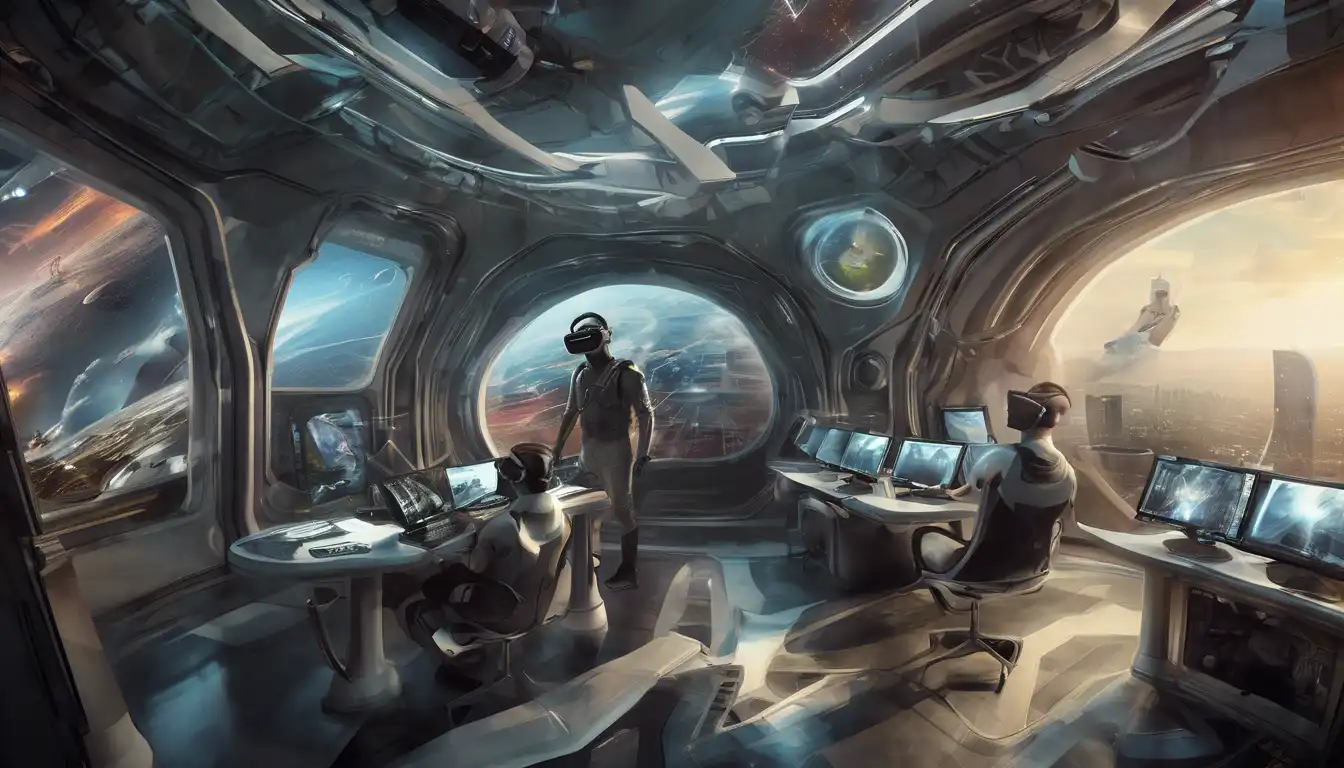Introduction to Virtual Reality
Virtual Reality (VR) is rapidly becoming one of the most exciting and transformative technologies in the digital age. By creating immersive, interactive environments, VR has the potential to revolutionize how we work, learn, and play. This article delves into the current state of VR technology, its applications across various industries, and what the future holds for this groundbreaking innovation.
The Current State of VR Technology
Today's VR technology offers unprecedented levels of immersion, thanks to advancements in hardware and software. High-resolution displays, motion tracking, and haptic feedback systems work together to create realistic virtual environments. Companies like Oculus, HTC, and Sony are at the forefront, pushing the boundaries of what's possible with VR.
Applications of Virtual Reality
VR's applications are vast and varied, spanning multiple sectors. Below are some of the most impactful uses of VR today:
- Education: VR can simulate historical events or scientific phenomena, providing students with immersive learning experiences.
- Healthcare: From surgical training to patient rehabilitation, VR is making significant contributions to medical fields.
- Entertainment: Gaming and movies are being transformed by VR, offering users a seat inside the action.
- Real Estate: Virtual tours allow potential buyers to explore properties from anywhere in the world.
The Future of Virtual Reality
The future of VR is bright, with ongoing research and development paving the way for even more immersive and interactive experiences. Innovations such as augmented reality (AR) and mixed reality (MR) are expanding the possibilities, blending the virtual and physical worlds in ways previously unimaginable. As technology continues to evolve, VR is set to become an integral part of our daily lives.
Challenges and Considerations
Despite its potential, VR faces several challenges, including high costs, technical limitations, and concerns over privacy and security. Addressing these issues is crucial for the widespread adoption of VR technology.
Conclusion
Virtual Reality represents the next frontier in tech, offering endless possibilities for innovation and transformation. As we continue to explore and expand the capabilities of VR, it's clear that this technology will play a pivotal role in shaping the future of digital interaction. Whether for education, healthcare, entertainment, or beyond, VR is set to redefine our reality.
